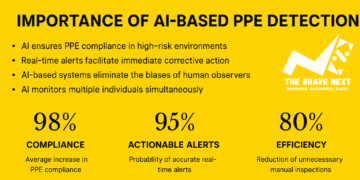Mental health plays a vital role in overall well-being, yet many individuals struggle to access the care they need. In Georgia, a wide range of behavioral health programs are making a significant difference in the lives of people of all ages. Whether you’re dealing with anxiety, depression, substance abuse, or developmental disorders, Georgia behavioral health services are designed to provide comprehensive, compassionate, and personalized care.
What Is Behavioral Health?
Behavioral health refers to the connection between behaviors and the well-being of the body, mind, and spirit. It includes mental health conditions, substance use disorders, and other factors that influence emotional and psychological wellness. Behavioral health services may include therapy, medication management, crisis intervention, and community support.
In Georgia, these services are provided through a combination of state-funded programs, private practices, and nonprofit organizations. The goal is to support individuals in achieving emotional balance, maintaining productive relationships, and leading fulfilling lives.
Key Components of Georgia Behavioral Health Programs
1. Mental Health Services
Georgia offers a broad spectrum of mental health services for individuals with conditions such as:
- Anxiety
- Depression
- Bipolar disorder
- Schizophrenia
- Post-traumatic stress disorder (PTSD)
- Obsessive-compulsive disorder (OCD)
These services often include individual therapy, group counseling, psychiatric evaluations, and medication management. Mental health care providers in Georgia work closely with patients to develop treatment plans tailored to their unique needs.
2. Substance Abuse and Recovery Programs
Substance use disorders are a critical concern, and Georgia behavioral health initiatives are at the forefront of addressing them. Many programs focus on:
- Detoxification support
- Inpatient and outpatient treatment
- 12-step programs and peer support
- Medication-assisted treatment (MAT)
- Relapse prevention
Recovery is a lifelong journey, and Georgia’s programs are structured to provide long-term support, resources, and encouragement for individuals striving to overcome addiction.
3. Crisis Intervention Services
Behavioral health crises can arise suddenly, and immediate access to care is crucial. Georgia has established 24/7 crisis lines, mobile crisis teams, and walk-in behavioral health centers that offer emergency assessments and short-term stabilization.
These services are often connected to law enforcement, schools, and hospitals, helping de-escalate situations and direct individuals to appropriate care pathways without unnecessary hospitalization.
4. Youth and Adolescent Programs
Children and teenagers face unique challenges when it comes to behavioral health. Georgia’s youth-focused programs provide early intervention, school-based therapy, and family counseling. Issues addressed include:
- Behavioral disorders
- Academic stress
- Social anxiety
- ADHD
- Trauma and abuse recovery
By intervening early, these programs help young people build resilience, learn coping skills, and thrive both emotionally and academically.
5. Support for Adults and Seniors
Adults often juggle work, family responsibilities, and personal challenges that can affect their mental health. Seniors may face isolation, loss, or cognitive decline. Georgia offers specialized programs for:
- Stress management
- Depression and grief support
- Dementia care
- Chronic illness management
- Life transitions and aging support
Through both individual and group therapy, older adults and caregivers receive the emotional guidance they need.
Accessibility of Georgia Behavioral Health Services
Telehealth and Virtual Counseling
In response to growing demand and the need for flexibility, many Georgia behavioral health providers now offer virtual therapy sessions. Telehealth removes barriers such as travel, scheduling conflicts, and mobility limitations—making it easier than ever for people to connect with a licensed professional from the comfort of their homes.
Insurance and Financial Assistance
Most behavioral health services in Georgia accept private insurance, Medicaid, and Medicare. State-funded programs often provide sliding scale fees or free care for individuals who qualify. No one should be denied mental health care due to financial hardship, and assistance is available for navigating coverage options.
Community-Based Resources
Georgia is home to numerous community mental health centers and nonprofit organizations that offer localized support. These centers provide:
- Peer mentoring
- Case management
- Life skills training
- Employment assistance
- Housing support for individuals with serious mental illness
Community-based care is essential for long-term recovery and reintegration into society.
How to Choose the Right Behavioral Health Provider in Georgia
When selecting a behavioral health provider, consider the following:
- Credentials and licensing: Ensure the provider is qualified and licensed in the state of Georgia.
- Specializations: Some professionals specialize in trauma, children’s mental health, addiction, or couples therapy.
- Treatment approaches: Cognitive behavioral therapy (CBT), dialectical behavior therapy (DBT), and holistic methods are just a few available options.
- Location and accessibility: Consider how easy it is to access the facility or whether virtual sessions are available.
- Patient reviews and reputation: Look for feedback from current or former clients to gauge satisfaction and outcomes.
Impact of Georgia Behavioral Health Programs
The benefits of quality behavioral health care are far-reaching. Individuals who engage in therapy and supportive services often experience:
- Reduced symptoms of mental illness
- Improved relationships and communication
- Better academic or job performance
- Healthier coping mechanisms
- Enhanced quality of life
Georgia’s investment in behavioral health not only supports individuals but also strengthens families and communities across the state.
Future of Behavioral Health in Georgia
The state of Georgia continues to expand and innovate its approach to behavioral health. Legislative initiatives aim to:
- Increase mental health funding
- Improve workforce development for behavioral health professionals
- Expand access in rural and underserved areas
- Integrate mental and physical health services for holistic care
As awareness and demand for mental health services grow, Georgia remains committed to improving access, reducing stigma, and delivering high-quality behavioral health care to all residents.
Conclusion
Mental health is an essential part of total wellness, and Georgia is making strides through a variety of behavioral health programs that serve people from all walks of life. Whether you’re seeking help for yourself or a loved one, Georgia behavioral health services provide the support, guidance, and treatment needed for a healthier and more fulfilling life.
From youth counseling to senior care, and from addiction recovery to crisis intervention, these programs aim to meet the diverse needs of Georgia’s population. With compassionate professionals, accessible options, and community-driven resources, you can take the first step toward better mental health today.





















